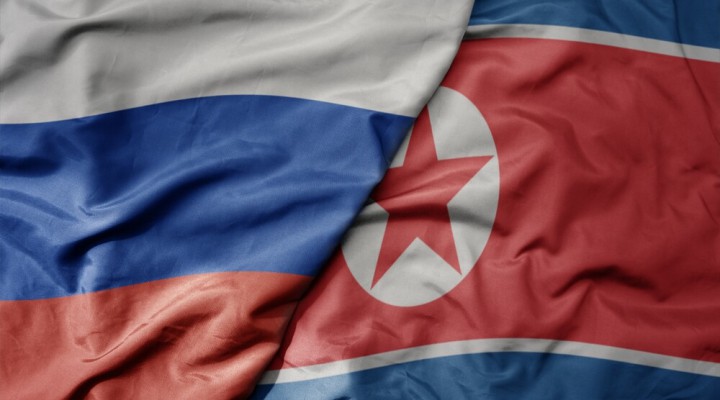Russia-North Korea: The New Alliance

Russian President Vladimir Putin’s state visit to North Korea has shaken the foundation of regional and global security relationships and understandings that have underpinned geopolitics for decades. In one fell swoop, Putin and North Korean leader Kim Jung-un upended decades of US-backed policy designed to isolate, undermine and ultimately collapse the government of North Korea and better position the US to dominate the Pacific flank of both Russia and China. This has been replaced with a new strategic alliance between Russia and North Korea that will redefine the region’s geopolitical balance of power.
For decades, Russia went along with the precepts of international law when it came to North Korea and the nuclear Non-Proliferation Treaty, voting in favor of UN sanctions designed to compel Pyongyang to give up its ambitions regarding nuclear weapons. However, in the aftermath of Russia’s invasion of Ukraine in February 2022, the Russian government’s attitude toward Western-led sanctions shifted from viewing them as a legitimate tool of imposing the will of the UN, to seeing them as a tool of US foreign and security policy.
The initial Russian posture toward North Korea was one of benign neglect of the sanction regime, allowing commercial activity that otherwise would be proscribed by sanctions. Russia, together with China, then began blocking efforts by the US and its allies to impose additional sanctions on North Korea in response to Pyongyang’s aggressive testing of ballistic missiles. But the first serious indication that Russia was moving toward a complete break with the West on North Korea came in September 2023 with the visit of Kim Jung-un to Vladivostok and the Russian Far Eastern region.
Kim had previously visited Russia in 2019 following his second meeting with then-US President Donald Trump. At that time, the prospects of improved relations between North Korea and the US put a damper on Russian enthusiasm for any dramatic changes in relations with Pyongyang. The September 2023 visit saw Kim announce his full support for Russia’s invasion of Ukraine, and the two nations entered into agreements on the supply of weapons and munitions to Russia by North Korea. Putin responded to the improvement of relations by blocking the extension of a special UN body tasked with monitoring North Korean compliance with UN sanctions.
Strategic Pivot
Despite the changes in the tenor and character of the Russian-North Korean relationship in 2023, the scope and scale of the policy transformation signaled by Putin’s June 2024 visit still took the world by surprise. Many Western analysts had portrayed Putin’s visit as an act of desperation, with the Russian leader planning to beg Kim for more munitions for a struggling war effort. Putin’s visit instead served as another step in a larger foreign and national security posture that has Russia breaking its decades-long ties with the West and pivoting toward Eurasia.
Putin and Kim signed a strategic cooperation agreement that pledges the two nations to a framework of mutual defense assistance should they come under aggression from a third party, as well as broader cooperation in military matters, foreign policy and trade. The specific scope and scale of the commitment remains somewhat nebulous — North Korea has likened it to an alliance, while Russia remains reticent about the specific obligations. But the reality is that the US, South Korea and Japan, which assumed regime change in North Korea in the event of any future conflict, now face uncertainty over a Russian reaction to any outbreak of hostilities on the Korean Peninsula.
Going forward, the trilateral alliance must consider the prospect of Russian military intervention in any future conflict with North Korea, which they never considered when preparing for a potential war with Pyongyang. Already Russia has pledged to provide North Korea with access to modern weaponry and technology that will allow it to deliver precision conventional and nuclear strikes against US, Japanese and South Korean targets. The politics of confronting a North Korean-Russian partnership are very different from those that supported the containment of North Korea alone.
Changing the Game
The changes engendered by the Russian-North Korean strategic cooperation extend beyond security. Decades of policy targeting the political and economic isolation of North Korea have been undone. North Korea’s long economic isolation created a system where, in order to sustain an industrial sector capable of fielding both nuclear weapons and their means of delivery, other areas of society were given a lower priority. No sector suffered more from this than agriculture, where North Korea engaged in inefficient practices that were labor-intensive but produced insufficient quantities of food. The result was that North Korea was always operating in a state where one bad harvest could — and did — result in widespread famine. The relationship with Russia has already altered this situation, with Russia providing much-needed food supplies and material support for the North Korean farming sector.
In the years to come, Russia’s relationship with North Korea will factor into Moscow’s strategic pivot toward Eurasia. While Brics membership may not be on the immediate horizon for Pyongyang, North Korea will directly and indirectly reap the benefits of Russia’s leadership position in Brics. The world, accustomed to a nation limited by its isolation, will have to adapt to a less constrained North Korea operating in concert with a Russia that has no desire to be a part of the collective West and its rules-based international order.
https://www.energyintel.com/00000190-6dc7-df74-a79f-6fff555e0000
 TheAltWorld
TheAltWorld 
0 thoughts on “Russia-North Korea: The New Alliance”